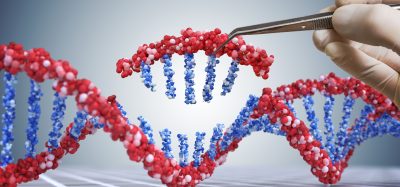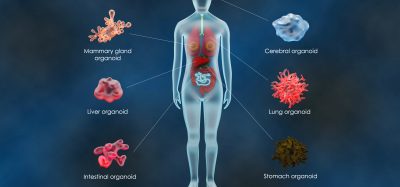Novel database could accelerate drug repurposing for various diseases
Posted: 4 August 2021 | Anna Begley (Drug Target Review) | No comments yet
NICEdrug.ch is an open-access database that may help scientists assess potential drugs for a range of diseases more quickly.


Researchers at the École Polytechnique Fédérale de Lausanne (EPFL), Switzerland, have created a new open-access database of information on drug candidates and how they are metabolised by the body. The database, NICEdrug.ch, could help speed up the repurposing of drugs for new treatments.
The team developed the NICEdrug.ch database with information on 250,000 potential drug molecules. The database includes detailed analysis of the drugs’ structures, the enzymes they target, how they are likely to be altered by human metabolism and their potential side effects. Using their database, the team demonstrated that it could accurately predict the behaviour of drug-enzyme pairs around 70 percent of the time and that it was 100 percent accurate for half of the pairs tested.
The researchers then used the system to look for drugs that could be repurposed for cancer, high cholesterol, malaria and COVID-19. Their search yielded some clues on how scientists might alleviate the toxic side effects of the cancer drug 5-fluorouracil. They also identified shikimate 3-phospate as a potential drug to treat the liver stage of malaria with fewer side effects. They identified over 1,300 potential anti-COVID-19 drugs, including some that are already safely used to treat a number of other conditions. Further studies are now necessary to validate that these drugs can be repurposed for this disease.
Biomarkers aren’t just supporting drug discovery – they’re driving it
FREE market report
From smarter trials to faster insights, this report unpacks the science, strategy and real-world impact behind the next generation of precision therapies.
What you’ll unlock:
- How biomarkers are guiding dose selection and early efficacy decisions in complex trials
- Why multi-omics, liquid biopsy and digital tools are redefining the discovery process
- What makes lab data regulatory-ready and why alignment matters from day one
Explore how biomarkers are shaping early drug development
Access the full report – it’s free!
The researchers have made the NICEdrug.ch database available for others as an open-access resource. In addition to helping find new purposes for existing drugs, the system may help scientists understand why some drugs cause harmful side effects and either identify ways to alleviate them or explore alternative drugs.
“Our hope is that scientists and decision makers in the pharmaceutical industry alike can use this unique database to better inform their research and clinical decisions, saving time, money and ultimately lives,” senior author Vassily Hatzimanikatis concluded.
The study was published in eLife.
Related topics
Analytical Techniques, Artificial Intelligence, Big Data, Drug Development, Drug Repurposing, Drug Targets, Enzymes, Informatics, Pharmacology, Screening, Small Molecules, Targets, Technology, Therapeutics
Related conditions
Cancer, Covid-19, high cholesterol, Malaria
Related organisations
Ecole Polytechnique Fédérale De Lausanne (EPFL)
Related people
Vassily Hatzimanikatis








